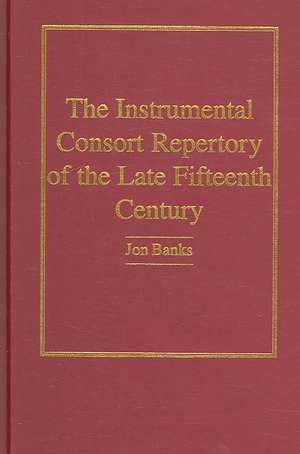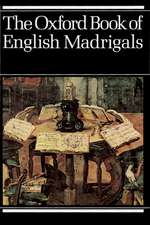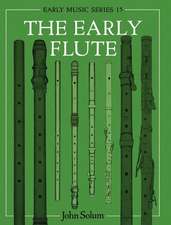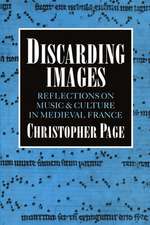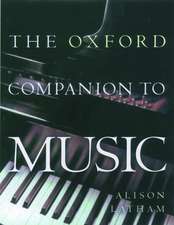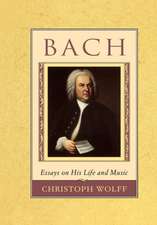The Instrumental Consort Repertory of the Late Fifteenth Century
Autor Jon Banksen Limba Engleză Hardback – 15 noi 2006
Preț: 821.10 lei
Preț vechi: 1141.17 lei
-28% Nou
Puncte Express: 1232
Preț estimativ în valută:
157.17€ • 170.78$ • 132.11£
157.17€ • 170.78$ • 132.11£
Carte tipărită la comandă
Livrare economică 21 aprilie-05 mai
Preluare comenzi: 021 569.72.76
Specificații
ISBN-13: 9780754653400
ISBN-10: 0754653404
Pagini: 194
Dimensiuni: 156 x 234 mm
Greutate: 0.52 kg
Ediția:1
Editura: Taylor & Francis
Colecția Routledge
Locul publicării:Oxford, United Kingdom
ISBN-10: 0754653404
Pagini: 194
Dimensiuni: 156 x 234 mm
Greutate: 0.52 kg
Ediția:1
Editura: Taylor & Francis
Colecția Routledge
Locul publicării:Oxford, United Kingdom
Cuprins
Contents: Introduction: What instrumental consort repertory?; Lutes, players and the humanist tradition; Defining the repertory; The textless chansonniers: repertory, compilation and use; Instrumental items in mixed sources; Epilogue; Appendix; Source abbreviations and bibliography; Index.
Notă biografică
Jon Banks Part-time Lecturer, London Metropolitan University and City University, London, UK and Anglia Polytechnic University, Cambridge, UK
Recenzii
’All who enjoy the repertoire will find this book stimulating...’ Early Music Review ’... Banks sets out his arguments in a clear and convincing manner. In doing so, he paints a fascinating portrait of musical life in the late 15th century, which makes the book of interest to more than just specialists in the field. There are copious printed musical examples, including several complete pieces, which give a very good idea of how the music might sound.’ The Consort ’Banks’s work is a welcome addition to the scholarship for the renewed and vigorous discussion it will surely provoke.’ Early Music ’Banks's survey of the repertory is exhaustive and meticulous, and his arguments careful; every time I questioned one of his arguments or thought of an alternative explanation, he had anticipated my objection and refuted it thoughtfully. Performers such as myself will find the book immensely useful as a guide to choosing performing forces and coherent concert programs for secular music of the late fifteenth and early sixteenth centuries. At the same time, musicological reseachers will find its careful counts and categories useful as a starting point for their own future work.’ Sixteenth Century Journal
Descriere
After a rigorous examination of the criteria by which music of this period may be judged to be instrumental, Jon Banks isolates all such pieces and establishes them as an explicit genre alongside the more commonly recognized vocal forms of the period. The distribution of these pieces in the manuscript and early printed sources of the time demonstrate how central instrumental consorts were to musical experience in Italy at this time. Banks also explores the social background to Italian music-making, and particularly the changing status of instrumentalists with respect to other musicians. This book restores an impressive but largely overlooked consort repertory to its rightful place in the history of music.
